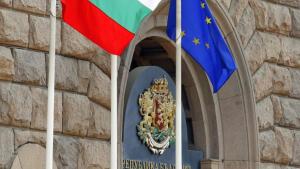On Sunday and Monday, Bulgaria is honouring its greatest national hero Vassil Levski (1837-1873) on the 151st anniversary of his death.
Revered as "the Apostle of Freedom", Levski is arguably the most influential Bulgarian revolutionary leader in the struggle for liberation from Ottoman rule in the late 19th century and one of the few truly undisputed national heroes, whom Bulgarians hold dear to their hearts.
He is credited as a farsighted and brilliant ideologist of the Bulgarian revolution and its peerless organizer. He advanced a new tactics of self-reliant revolutionary struggle, advocating the establishment of a political structure and military organization with massive grass roots support rather than relying on scattered and sporadic action dictated by the international situation and manipulated by foreign powers.
Levski laid the foundations of Bulgarian ethnic tolerance, insisting that concord, brotherhood and equality of all ethnic groups must prevail in post-Liberation Bulgaria. He argued that, once free, his country's form of government should be a "pure and sacred republic". He wanted Bulgarians to advance on a par with the rest of Europe's nations, maintaining good relations with all their neighbours.
Born Vasil Ivanov Kunchev in Karlovo (Central Bulgaria) on July 18, 1837, Levski earned his nickname, which means "lionlike" in Bulgarian, for the courage and skills in which he excelled as part of the First Bulgarian Legion (1861-1862) in Belgrade. In 1869, he shared in the establishment of the Bulgarian Revolutionary Central Committee (BRCC) in Bucharest with the purpose of sparking a nationwide uprising. During two tours of Bulgaria starting in 1870, he organized a ramified network of over 250 local committees, enlisting 12,000-plus Bulgarians for the cause of the liberation struggle. In 1872, the BRCC designated him Chief Apostle of Bulgaria, Thrace and Macedonia. Levski then left Bucharest and continued his activities in the Bulgarian lands. The Ottoman authorities captured the revolutionary in an inn in the village of Kakrina near Lovech (North Central Bulgaria) on December 27, 1872. Taken to Sofia, he was tried by a Special Investigative Commission, which in mid-January 1873 proposed a death sentence for Levski. Ottoman Sultan Abdulaziz confirmed the sentence a week later, and the hero was hanged on the outskirts of Sofia on February 18, 1873.
Curiously, the two-day annual commemoration of the hero's death is due to a persistent misdating. His execution took place on February 6, 1873 according to the Julian Calendar (Old Style). When Bulgaria switched to the Gregorian Calendar in 1916, the date should have remained as converted by adding 12 days for the 19th century, which gives February 18 (New Style), but 13 days were added instead as was the case for dates in the 20th century. Thus, the commemoration was held on February 19.
For some time now, the anniversary has been marked on February 18 in a number of locations countrywide, including Levski's native Karlovo, while the principal ceremony takes place on the 19th at a monument in central Sofia marking the site where the patriot was hanged.
Of the 168 Levski monuments set up so far around the world, 143 are in Bulgaria and 25 are abroad: in Buenos Aires and Las Brenas, Argentina; Brussels, Belgium; Thessaloniki, Greece; Brampton and Toronto, Canada; Nicosia, Cyprus; Cienfuegos, Cuba; Skopje, North Macedonia; Chisinau, Parcani and Tvardita, Moldova; Bucharest, Enichioi and Turnu Magurele, Romania; Washington and Chicago (two), US; Belgrade, Bosilegrad and Dimitrovgrad, Serbia; Berdiansk and Odesa, Ukraine; Paris, France; and Tokyo, Japan.
Revered as "the Apostle of Freedom", Levski is arguably the most influential Bulgarian revolutionary leader in the struggle for liberation from Ottoman rule in the late 19th century and one of the few truly undisputed national heroes, whom Bulgarians hold dear to their hearts.
He is credited as a farsighted and brilliant ideologist of the Bulgarian revolution and its peerless organizer. He advanced a new tactics of self-reliant revolutionary struggle, advocating the establishment of a political structure and military organization with massive grass roots support rather than relying on scattered and sporadic action dictated by the international situation and manipulated by foreign powers.
Levski laid the foundations of Bulgarian ethnic tolerance, insisting that concord, brotherhood and equality of all ethnic groups must prevail in post-Liberation Bulgaria. He argued that, once free, his country's form of government should be a "pure and sacred republic". He wanted Bulgarians to advance on a par with the rest of Europe's nations, maintaining good relations with all their neighbours.
Born Vasil Ivanov Kunchev in Karlovo (Central Bulgaria) on July 18, 1837, Levski earned his nickname, which means "lionlike" in Bulgarian, for the courage and skills in which he excelled as part of the First Bulgarian Legion (1861-1862) in Belgrade. In 1869, he shared in the establishment of the Bulgarian Revolutionary Central Committee (BRCC) in Bucharest with the purpose of sparking a nationwide uprising. During two tours of Bulgaria starting in 1870, he organized a ramified network of over 250 local committees, enlisting 12,000-plus Bulgarians for the cause of the liberation struggle. In 1872, the BRCC designated him Chief Apostle of Bulgaria, Thrace and Macedonia. Levski then left Bucharest and continued his activities in the Bulgarian lands. The Ottoman authorities captured the revolutionary in an inn in the village of Kakrina near Lovech (North Central Bulgaria) on December 27, 1872. Taken to Sofia, he was tried by a Special Investigative Commission, which in mid-January 1873 proposed a death sentence for Levski. Ottoman Sultan Abdulaziz confirmed the sentence a week later, and the hero was hanged on the outskirts of Sofia on February 18, 1873.
Curiously, the two-day annual commemoration of the hero's death is due to a persistent misdating. His execution took place on February 6, 1873 according to the Julian Calendar (Old Style). When Bulgaria switched to the Gregorian Calendar in 1916, the date should have remained as converted by adding 12 days for the 19th century, which gives February 18 (New Style), but 13 days were added instead as was the case for dates in the 20th century. Thus, the commemoration was held on February 19.
For some time now, the anniversary has been marked on February 18 in a number of locations countrywide, including Levski's native Karlovo, while the principal ceremony takes place on the 19th at a monument in central Sofia marking the site where the patriot was hanged.
Of the 168 Levski monuments set up so far around the world, 143 are in Bulgaria and 25 are abroad: in Buenos Aires and Las Brenas, Argentina; Brussels, Belgium; Thessaloniki, Greece; Brampton and Toronto, Canada; Nicosia, Cyprus; Cienfuegos, Cuba; Skopje, North Macedonia; Chisinau, Parcani and Tvardita, Moldova; Bucharest, Enichioi and Turnu Magurele, Romania; Washington and Chicago (two), US; Belgrade, Bosilegrad and Dimitrovgrad, Serbia; Berdiansk and Odesa, Ukraine; Paris, France; and Tokyo, Japan.











































